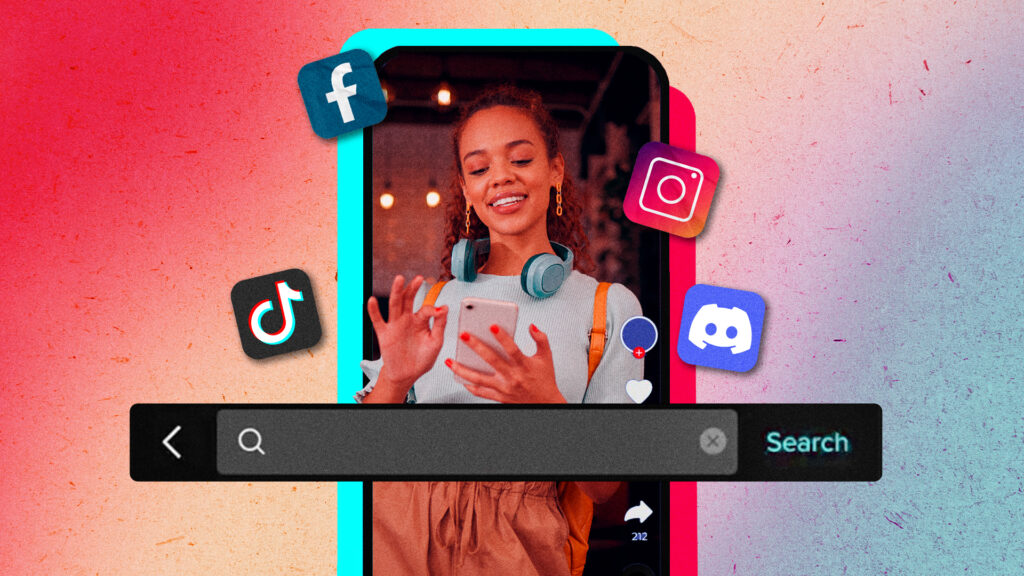Navigating Gen Z's Consumer Behavior: A Marketer's Guide to Success
Table Of Contents
Understanding Gen Z's Preferences
In the dynamic landscape of consumer behavior, traditional marketing funnels are giving way to a more fluid and interconnected approach, particularly among Gen Z consumers. As digital natives, this generation navigates a complex ecosystem shaped by social media, influencers, and user-generated content (UGC).
In this article, Hollywood Branded shares a nuanced understanding of Gen Z’s consumer preferences and behaviors to help brands and marketers adapt to the evolving landscape of consumer behavior and position themselves for success in the digital age.

Who is Gen Z?
Generation Z, commonly referred to as Gen Z, comprises individuals born between the mid-to- late 1990s and early 2010s, raised in a landscape dominated by technology, social media, and the allure of instant gratification. Their consumer behavior stands as a distinct departure from preceding generations.
Gen Z epitomizes a generation deeply entrenched in digital connectivity. Raised amidst the proliferation of technology, social media, and internet accessibility, they exhibit a profound adeptness in utilizing digital platforms for information retrieval, social interaction, and purchase decisions.
Setting them apart from their predecessors, Gen Z embodies a paradigm of diversity and inclusivity. Embracing a broad spectrum of cultures, races, and genders, they espouse values of openness and acceptance. Consequently, marketing endeavors characterized by inclusivity and diversity are poised to strike a chord with this generation.
Unveiling Gen Z's Consumer Journey
Recent research conducted by US-based youth culture agency Archrival provides valuable insights into how Gen Z approaches buying decisions. In a survey of 750 Gen Z individuals and 250 millennials, coupled with qualitative focus groups, Archrival uncovered key trends that illuminate the modern consumer journey.
Their findings reveal that consumption today is characterized by an infinite loop of inspiration, exploration, community, and loyalty. Gen Z consumers are constantly seeking new sources of inspiration, with social media emerging as the primary platform for fashion and beauty purchases. According to Archrival’s data, three in 10 Gen Z individuals globally use social media to source inspiration, with 77 percent actively seeking style inspiration at least monthly, and nearly half of them turning to social media for this purpose.
The Power of Visual Content: Capturing Gen Z's Attention
When it comes to discovering new brands, products, and experiences, video content reigns supreme. When questioned about their primary sources for discovering new brands, products, and experiences, video platforms emerge as the dominant choice: 57% prefer YouTube, followed closely by 53% on TikTok, and 44% on Instagram. Other notable sources include Google searches and ads at 29%, word of mouth or recommendations at 25%, Amazon at 22%, TV advertisements at 21%, in-store experiences at 18%, and Snapchat also at 18%. YouTube, TikTok, and Instagram top the list of platforms where Gen Z consumers learn about new offerings, highlighting the importance of visual content in capturing their attention.
However, as young people consume more content than ever, brands face the challenge of cutting through the noise. Archrival’s research indicates that 80 percent of Gen Z consumers feel bombarded with brands and advertising, emphasizing the need for brands to deliver inspiration in meaningful ways at the right moments. Brands must navigate these platforms strategically, leveraging engaging content and authentic storytelling to capture Gen Z's attention amidst the digital noise. While social media serves as a catalyst for inspiration, Gen Z remains discerning, relying on user-generated content, reviews, and peer recommendations to inform their purchasing decisions.

Photo credit: a.list
Influencer Culture: Shaping Gen Z's Preferences
One notable finding is the significant influence of online influencers on Gen Z's purchasing decisions. In this saturated digital landscape, influencers continue to play a pivotal role in shaping Gen Z’s purchasing decisions. Over half of Gen Z individuals believe that social media influencers create new trends, underscoring the influence of online personalities in driving consumer behavior. Additionally, a significant percentage credit celebrities with trendsetting, further emphasizing the importance of influencer marketing strategies for brands targeting Gen Z. When considering a purchase, 40 percent of Gen Z consumers seek out reviews from online influencers, a higher percentage compared to millennials (31%). To capitalize on this trend, direct-to-consumer (DTC) fashion and beauty brands leverage UGC to showcase real customers using their products. This strategy not only builds trust but also provides valuable insights for potential buyers.
Price Transparency and Value: Key Drivers for Gen Z
Additionally, Gen Z consumers exhibit a penchant for price comparison and savvy shopping tactics. Almost half of Gen Z individuals (48 percent) utilize Amazon as a tool to hunt down dupes or lower-priced alternatives. Furthermore, 48 percent of both Gen Z and millennial respondents compare prices on Amazon before making a purchase decision. This emphasis on value and affordability underscores the importance of price transparency and competitive pricing strategies for brands targeting Gen Z.
The Role of Digital Curation and Authenticity
During the research phase, Gen Z individuals employ various methods to curate their shopping preferences. Collating images of desired products into wishlists, Pinterest mood boards, or digital folders is a common practice among Gen Z consumers. This visual approach allows them to save and revisit potential purchases, reflecting their digital-native habits and preference for curated content.
Despite the rise of influencer culture, Gen Z consumers remain discerning, seeking authenticity and credibility in their interactions with brands. In the realm of marketing to Gen Z, authenticity reigns supreme. The behavior of Gen Z underscores their perpetual quest for authenticity in brand interactions. Brands must prioritize transparency and genuineness in their messaging, steering clear of conventional advertising ploys. Instead, the focus should be on fostering genuine connections with the audience through avenues like social media and influencer collaborations.
According to research conducted by Kantar, a staggering 81% of Gen Z consumers demand authenticity from companies in their advertising efforts. Moreover, findings from the National Retail Federation reveal that 70% of Gen Z consumers express a preference for brands that take a clear stance on social and environmental issues.
The discerning nature of Gen Z renders them highly skeptical of traditional advertising tactics. They gravitate towards brands that exude authenticity and transparency, readily detecting instances of inauthenticity or forced attempts to assimilate into their culture. To effectively capture the attention of Gen Z, brands must authentically craft their messaging and approach. Furthermore, a willingness to take calculated risks and experiment with messaging strategies is paramount to standing out amidst the competition.
Gen Z values user-generated content and peer recommendations, leveraging platforms like Amazon to hunt for dupes and compare prices before making purchasing decisions. This emphasis on value and transparency underscores the need for brands to build trust and credibility through authentic engagement with their audience.
Bridging the Digital and Physical Worlds
Beyond digital channels, Gen Z consumers still value in-person experiences and tactile engagement. Bricks-and-mortar stores offer opportunities for immersive brand experiences and personalized interactions that complement online engagement. Brands that seamlessly integrate online and offline experiences can foster deeper connections with Gen Z consumers and drive brand loyalty.

Photo credit: ADOBESTOCK_504268095
Navigating the Path to Gen Z's Hearts
In conclusion, understanding and adapting to Gen Z’s path to purchase is crucial for brands seeking to resonate with this influential consumer segment. By leveraging social media, influencer partnerships, and authentic storytelling, brands can cut through the noise and forge meaningful connections with Gen Z consumers. By embracing creativity, authenticity, and innovation, brands can navigate the complexities of modern consumer behavior and cultivate lasting relationships with the consumers of tomorrow.
Eager To Learn More?
To explore further insights into engaging with consumers, delve into our other articles on evolving marketing strategies and ways brands are able to connect with audiences through different channels.
- How Brands Are Reaching Consumers: Streaming & Television
- The Psychology Behind Product Placement
- Genius SKIMS Marketing Campaigns
- Why Brands Fail On TikTok: Missing Game-Changing Strategies
- Blog 5The Role of Authenticity in Public Relations
Want to stay in the know with all things pop culture? Look no further than our Hot in Hollywood newsletter! Each week, we compile a list of the most talked-about moments in the entertainment industry, all for you to enjoy!







